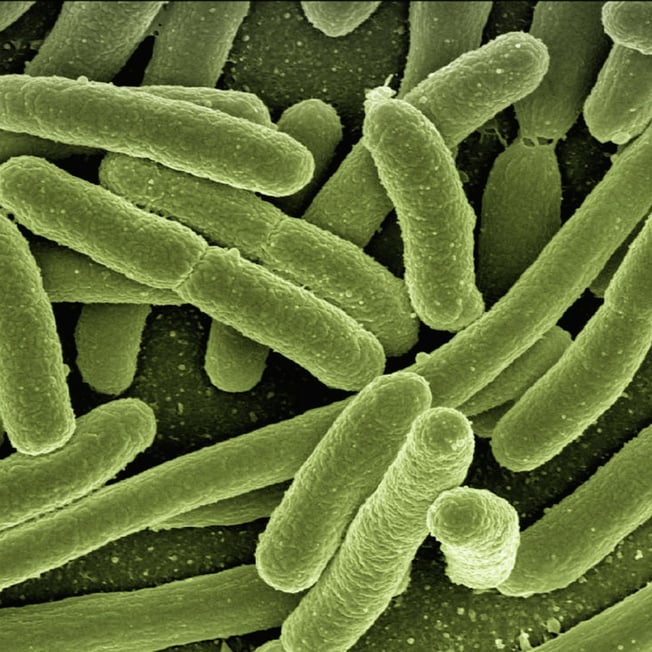Our story begins a long time ago. Nobody else was alive to witness it. The only record that we have of this story are fossils that have just been recently uncovered.
Their ancient preserves tell us that 3.5 billion years ago the first microorganisms started to form under the right chemical-rich conditions as the Earth cooled. (Chen, 2018).
In this environment, bacteria were responsible for two of the planet-changing events that created the conditions for mankind to be able to live.
2.5 billion years ago Cyanobacteria began producing oxygen as a byproduct. The newly oxygenated Earth allowed other life to grow. At a certain point in time around 2 billion years ago, a microbe engulfed a bacteria for the first time. There is much that we don’t understand about this event, but we do know that these two organisms worked together and eventually evolved into eukaryotic (plant and animal) cells (Oxford, 2018).
This moment would change the future, shape the course of history, and is responsible for much of life as it exists today.
Our fate and the fate of bacteria have been tied together ever since then (Oxford, 2018).
The Most Numerous Organism on the Planet
Bacteria are astounding organisms.
They are all around us, but we can’t see them. One million of the smallest species can fit on the period at the end of this sentence (Chen, 2018).
From the moment that humans and bacteria began to live together, their history would be inseparably connected.
Humans and bacteria have evolved together for as long as we have lived. We can’t live without them and they can’t live without us (Chen, 2018).
It’s estimated that there are five million trillion trillion (yes, that’s two trillions) bacteria in the world and tens of thousands of different species that have been identified. The number of bacteria in the world easily dwarfs the number of humans. Many of them live inside of us. It turns out that we need them, and they need us. The key is finding the right balance (Chen, 2018).
From the moment that we are born, bacteria become part of our universal experience.
They live around us and inside of us. They are as much a part of our everyday life as breathing.
Humans don’t just share birth, death, and taxes as part of our lived experience. We also share bacteria.
We Share Beneficial Bacteria
Most species of bacteria are beneficial to us.
An overwhelming amount of good bacteria live in our intestines. These gut bacteria help us digest our food, synthesize vitamins, and promote overall intestinal health by helping us defecate properly and ensuring that the overall environment remains healthy.
There are countless other species of bacteria that perform useful functions including helping cows produce milk, helping plants obtain the nitrogen they need to grow, cleaning wastewater, eliminating oil from soils, and other research that has identified bacteria as an alternative fuel source (Chen,2018).
We also can share and become infected by harmful bacteria
Unfortunately, the symbiotic relationship shared between bacteria and humans has also created rampant devastation. Pathogens have caused more death historically than any wars or conquest ever have. (Balloux, 2017).
Pathogens have caused the death of billions of people throughout recorded history. For thousands of years, plagues and various sicknesses have ravaged civilizations without people understanding how these deaths were a result of pathogenic infection.
The future of humanity depends on successfully navigating our tension with both the good and bad bacteria.
Cleanliness from Now to the present
Even without the scientific understanding of bacteria and pathogens that we have now cleanliness has always been important.
Humans and animals have cleaned their environments for thousands of years. Various scientists have proposed that this trait is an evolutionary mechanism shared across all societies. Studies have shown that people share certain reactions of “disgust” to bodily fluids that signal that we should avoid them (Curtis, 2006).
Many ancient societies attest to the necessity of avoiding substances and sicknesses in their religious texts.
There is evidence to suggest that people have always been conscious of wanting to avoid sickness despite not having a proper understanding of it. In the battle against germs, we used the means that we had available to us to maintain control of our environment (Curtis, 2006).
Despite this desire, there had never been a historical definition of what cleanliness entailed. Definitions would change to reflect the culture, available technology, and priorities.
As a result, historical grooming standards, water sanitation, and plumbing inevitably had a mixed level of effectiveness.
Countless numbers of people died as a result of not being able to identify the silent killer that was ever-present, lurking in their kitchen, present on their hands after going to the bathroom, and multiplying in their water supplies.
The Discovery of Bacteria
It wasn’t until the last few hundred years that we have started to accurately identify bacteria.
In the 1600s the Dutch scientist Antonie van Leeuwehoek uncovered the hidden universe of bacteria for the first time with the help of a crude microscope. Not sure what to call this newly discovered form of life, he named them “tiny creatures” (Chen, 2018).
Can you even imagine what this new discovery would have felt like to him?
Despite the magnificence of what was revealed to him, Leeuwehoek’s work was limited to a description of what bacteria looked like from beneath the lens of his microscope.
It would take another 200 years after that monumental discovery to uncover the impact that bacteria can have on overall human health and spreading disease.
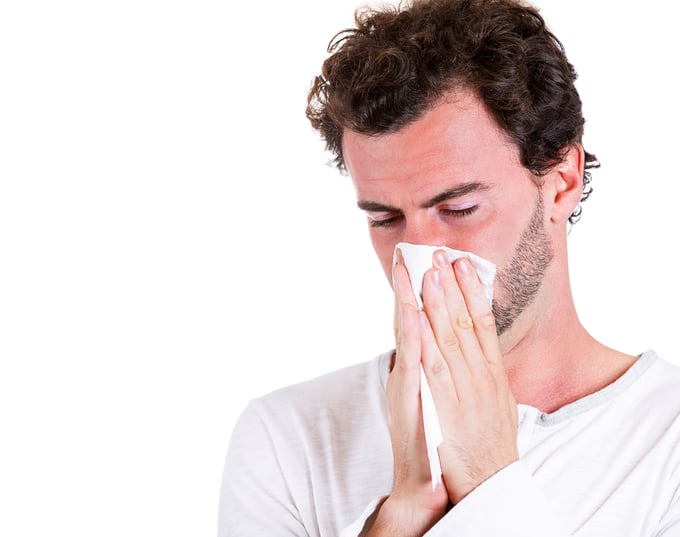
The Next Great Secret Unlocked
Then, in the 1800s one of the greatest kept secrets of bacteria was discovered by Louis Pasteur: bacteria are created through the reproduction of other bacteria. At the time, this was a novel idea but it proved that bacteria could reproduce and spread.
Over the course of his lifetime, Pasteur would conduct numerous other experiments. He discovered that bacterial infections in sick people could be transferred to other people and make them sick.
This germ theory of bacteria revolutionized the world (Harvard Library, 2021).
One of the longstanding culprits of plagues and death had finally been identified.
This remarkable knowledge turned generational wisdom on its head— Death didn’t come from breathing in the odors of swamp water, miasma, or from another ethereal substance. A bacterial infection spread through transmission.
Since the time of this discovery life has never been the same.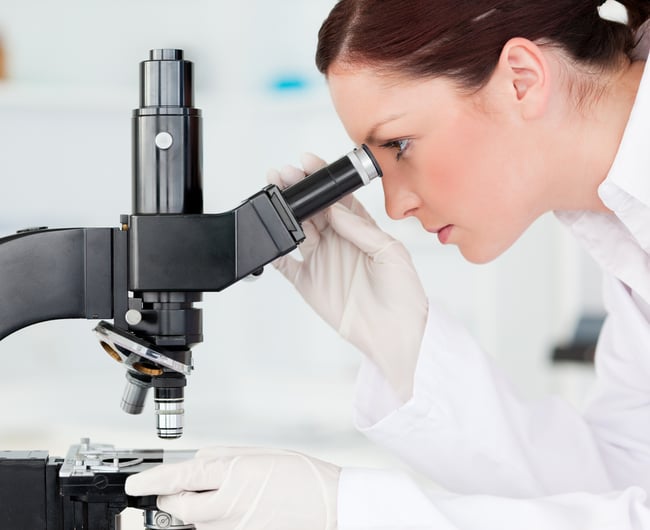
A silent killer
It wasn’t until the late 1800s that a doctor named Robert Koch was able to trace infections of anthrax from cattle to a mouse that somebody was able to trace the spread of a particular disease.
Koch spent the rest of his life developing a set of postulates to determine whether a bacteria was a pathogen. The modern science of pathogenic bacteriology was born, and many of today’s discoveries are a result of Koch’s research (Chen, 2018).
The Origin and History of Virus
Viruses are responsible for numerous diseases including Influenza, RSV, and Covid-19 among others.
Scientists aren't entirely sure about the origin of viruses, although various proposals theories have been debated including the progressive, reductive, and virus first hypothesis (Each of these theories along with a visual aid and references can be viewed here).
Despite being unclear about the origins of viruses, we know that they cannot exist on their own. They are noncellular and have a parasitic relationship with humans, meaning that they depend on our host cells to reproduce. Upon entering our cells, they use their hardware to replicate (Goulding).
Pasteur died without knowing about viruses, but by using his work Dmitry Ivanosky was able to work on the Tobacco Mosaic Disease and use the process of elimination to determine that another infectious microbe was causing the diseases in the leaves.
Decades later, the first electron microscope allowed us to see what viruses looked like for the first time.
Cleaning in the present
In order for a person to be healthy, they need to have more beneficial bacteria than harmful ones occupying their body. This is achieved by the immune system and by living in a safe and healthy environment. Bacteria that are useful in certain parts of the body can be harmful in other parts of the body. The key to our future well-being is finding the right balance for bacteria to play in our lives (Balloux, 2017).
This is where you come into the story, cleaner.
Your work directly changes the number of pathogenic bacteria that people come into contact with daily. Thousands of people rely on your work. They count on you to ensure that an unexpected visitor won’t greet them as they go about their daily activities.
The work that you do isn’t just a job, it’s a discipline that gives the future of humanity hope.
Each battle you fight against these potential pathogens might be invisible on a pathological level, but the effects of your work are felt on a daily basis.
In this ongoing war, bacteria and viruses are capable of doing things that we can't. They can reproduce at a staggeringly fast pace. With this ability, they can grow exponentially.
You have your own resources—advanced cleaning and disinfecting technology—that prevent this from happening.
Because of you people can enjoy their breakfast burrito without getting food poisoning, go to the bathroom in public without getting sick, and enjoy a clean pleasant environment.
People live much longer lives due to advancements in technology and the vigilance of your services.
You Play an Important Role in Our Future
We still have so much to learn about bacteria and viruses. Scientists continually research how they can be both beneficial and harmful to humanity as they work to understand how to limit the pathogenic spread of diseases.
Throughout all of this, bacteria and viruses remain constant. They are not going anywhere. We have to work alongside them so that we can have a healthy and prosperous future.
By following the advice of experts those responsible for cleaning can ensure that they are always providing an environment that is in top-notch shape for any building occupant.
The best way to do this is by following CDC and EPA recommendations on cleaning, building disinfection, and air filtration.
The CDC constantly updates its website to reflect the proper information that you need to maintain your facility based on the latest understanding of how pathogens (both bacteria and viruses) can be transmitted (CDC, 2021).
Although bacteria and viruses function differently biologically and have different origins, understanding how to protect against both is vital (The University of Queensland, 2022).
Guides on both websites cover:
- The importance of routine cleaning and consistency to achieve a common standard
- Using proper personal protective equipment while working
- Developing a routine cleaning plan for staff to follow
- The importance of cleaning and disinfecting high touch surfaces
- A list of disinfectants that are EPA registered.
- How reading instructions on the label is vital to getting the job done right (CDC, 2021).
Conclusion
Stories are powerful because they provide us with meaning and understanding. They empower us by defining our roles and the actions that we need to take.
You play a very significant role in this story and influence its outcome every day by helping reduce the transmission of infectious bacteria and viruses through cleaning.
We’re counting on you.
References
Appendix A: Model Program for the State School Environmental Health Guidelines. (2021, November 5). US EPA. https://www.epa.gov/schools/appendix-model-program-state-school-environmental-health-guidelines#component1
Balloux, F. (2017, October 19). Q&A: What are pathogens, and what have they done to and for us? - BMC Biology. BioMed Central. https://bmcbiol.biomedcentral.com/articles/10.1186/s12915-017-0433-z
Center for Disease Control and Prevention. (2021, September 22). How To Clean and Disinfect Schools To Help Slow the Spread of Flu | CDC. Www.Cdc.Gov. https://www.cdc.gov/flu/school/cleaning.htm
Chen, D., & Qian, X. (2018). A Brief History of Bacteria. Van Haren Publishing.
Curtis PhD., V. (2006). A natural history of hygiene. The Canadian Journal of Infectious Diseases & Medical Microbiology.
Germ Theory. (2021). Harvard Library CURIOSity Digital Collections. https://curiosity.lib.harvard.edu/contagion/feature/germ-theory
Goulding, J. (2021). Virus Replication. British Society for Immunology. https://www.immunology.org/public-information/bitesized-immunology/pathogens-and-disease/virus-replication
University of Oxford Museum of Natural History. (2018, October 19). Bacterial World. Www.Oum.Ox.Ac.Uk. http://www.oum.ox.ac.uk/bacterialworld/
What’s the difference between bacteria and viruses? (2022, January 20). Institute for Molecular Bioscience - University of Queensland. https://imb.uq.edu.au/article/2020/04/difference-between-bacteria-and-viruses#:%7E:text=On%20a%20biological%20level%2C%20the,need%20a%20host%20to%20survive.
Featured Products
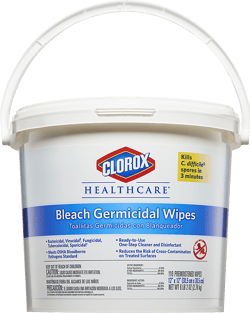
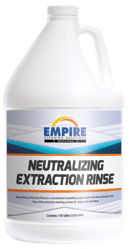
Empire Cleaning Solutions Neutralizing Extraction Rinse, 1 Gallon
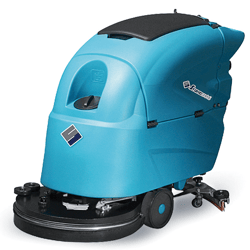
Hydro-Force Scrubber T55 Walk-Behind 20", Squeegee 30"

